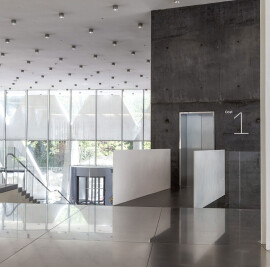Ideally architecture is not about fixing activities, fluxes or programs, or worse, about solving spatial problems. On the contrary, it is about opening up possibilities: the potential of a site, the hidden opportunity of a particular situation in time, of a programmatic conflict. It is about dealing with uncertainty, about enabling different and unforeseen scenarios.
In that sense architecture and urbanism are not opposed disciplines with different outcomes, but similar mediators, on different scales and in different degrees of complexity, with the same goal of enabling life.
The basis for architecture in our way of working is to carry out a meticulous scanning of a brief, a program or a context. Context not just as that what physically surrounds a project, but the larger field of social, economic, political, administrative and also technical issues, all on an equal level. This activity of accurate and systematic reading leads to a matrix of knowledge that frames any architectural decision. Sometimes this framework functions as a backdrop for postponed intuitions, sometimes it forms the battlefield for a bombardment of architectural proposals that slowly gain self-evidence through a process of trial and error.
The scanning raises new questions, opens up unexplored fields, reveals hidden opportunities, or brings together so-called incompatibilities. Through this working method all projects are rooted in their context, but as context has a visible and a hidden part, they often surpass their physical context and they sometimes completely transform it.
This explorative approach leads to a working method, not a style. Instead, style is restrictive to exploration. Our approach saves us from dogmatic thinking, from an all too narrow agenda, from the architectural one-liner.












